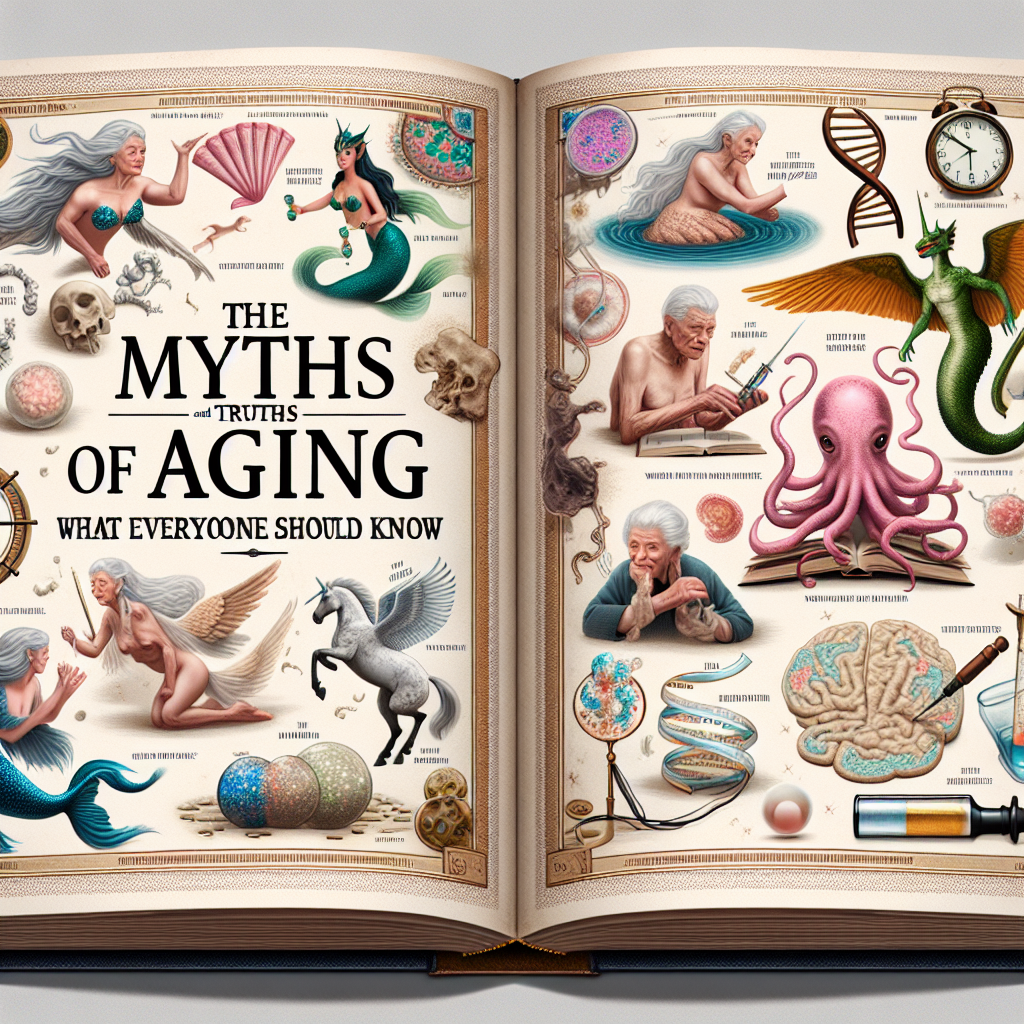Introduction
Aging is often portrayed as a daunting journey fraught with declines in health, vitality, and mental acuity. But what if we told you that many beliefs surrounding aging are steeped in myths rather than truths? Understanding The Myths and Truths of Aging: What Everyone Should Know can empower individuals to embrace aging confidently and healthfully. In this article, we’ll debunk common misconceptions, highlight scientific insights, and share real-world case studies that will transform your perspective on aging.
The Myths of Aging: Debunking Common Misconceptions
Myth 1: Aging Means Declining Health
This broad misconception casts a long shadow over the aging population, suggesting that older adults are destined for hospital visits and daily medications. While certain health concerns may increase with age, proactive lifestyle choices can significantly mitigate these risks.
Case Study: The Blue Zones
Blue Zones are regions where people commonly live to 100 years old. Studies show that in these areas—like Okinawa, Japan—residents lead active lifestyles, maintain strong social connections, and eat nutrient-rich diets. This illustrates that aging does not have to mean declining health.
Myth 2: Memory Loss is Inevitable
Many believe that cognitive decline is a natural part of aging, leading to the perception that memory loss is unavoidable. However, research indicates that mental stimulation and lifelong learning can keep our brains sharp.
Case Study: The Chicago Health and Aging Project
This longitudinal study tracked thousands of participants over several decades. Findings revealed that individuals who engaged in activities such as reading, puzzles, and social interaction had better cognitive health as they aged.
| Age Group | Cognitive Engagement Activities | Percentage with Decline |
|---|---|---|
| 60-70 | Reading, Puzzles | 25% |
| 70-80 | Social Engagement | 15% |
| 80+ | Continued Learning | 10% |
Myth 3: Older Adults Are Not Tech-Savvy
Another prevalent stereotype is that older adults cannot adapt to new technology. In reality, many seniors are eager and capable of embracing digital advancements.
Case Study: Senior Tech Literacy Programs
Programs across the United States have successfully trained older adults to use smartphones and computers. These initiatives often lead to improved quality of life by enabling communication with loved ones and access to information.
The Truths of Aging: Empowering Insights
Truth 1: Aging Can Be a Time of Vibrancy and Growth
While society often paints aging in a negative light, many individuals find incredible joy and fulfillment during their later years. This period of life can be a time for pursuing passions, forming new relationships, and even starting second careers.
Case Study: The Second Act Movement
This initiative encourages individuals over 50 to pursue new careers and learning opportunities. Many participants report finding deep satisfaction and purpose in their "second acts."
Truth 2: Nutrition Plays a Critical Role
Scientific research underscores that a balanced, nutrient-rich diet can help combat age-related health issues. Prioritizing whole foods, lean proteins, and healthy fats can contribute to overall well-being.
Case Study: Mediterranean Diet Benefits for Seniors
The Mediterranean diet, rich in fruits, vegetables, whole grains, and healthy fats, has been shown to reduce the risk of chronic diseases and improve cognitive functioning in older adults.
- Key Components of the Mediterranean Diet:
| Food Type | Recommended Intake |
|---|---|
| Fruits and Vegetables | 5+ servings/day |
| Whole Grains | 3 servings/day |
| Healthy Fats | Olive oil daily |
| Fish | 2 servings/week |
Truth 3: Social Connections are Vital
Maintaining strong social ties has profound effects on mental and physical health. Isolation can lead to increased health risks, while engagement fosters resilience and well-being.
Case Study: The Role of Community Centers
Communities that have invested in senior centers report lower rates of depression and loneliness among their older populations. Activities such as group exercise classes or art workshops bolster social networks.
Actionable Insights for Aging Gracefully
- Engage in Lifelong Learning: Commit to acquiring new skills or knowledge.
- Prioritize Nutrition: Consider adopting a balanced diet full of whole foods.
- Build and Maintain Relationships: Make time for family and friends to enrich your life.
- Stay Physically Active: Aim for at least 150 minutes of moderate exercise each week.
- Embrace Technology: Stay connected and informed using digital tools.
Conclusion
Understanding The Myths and Truths of Aging: What Everyone Should Know empowers individuals to challenge societal narratives around aging. Aging does not equate to decline; it offers opportunities for growth, joy, and fulfillment. By adopting a proactive approach, we can ensure that our later years are vibrant and meaningful.
FAQs About Aging
-
Is cognitive decline inevitable as we age?
- While some decline may occur, mental engagement and socialization can significantly mitigate these effects.
-
How can I maintain physical health as I age?
- Focus on nutrition, regular exercise, and routine medical check-ups to prevent health issues.
-
What role does diet play in the aging process?
- A healthy diet rich in nutrients can alleviate age-related conditions and promote overall well-being.
-
Can older adults learn new technology?
- Absolutely! Many seniors successfully learn technology through community programs and resources.
- How important are social connections for older adults?
- Very important! Strong social ties contribute significantly to mental health and longevity.
In this article, we’ve explored the misconceptions and realities of aging, providing you with insights to navigate this natural phase of life positively. Embrace the journey with open arms—after all, it’s not the years in your life that count, but the life in your years.

